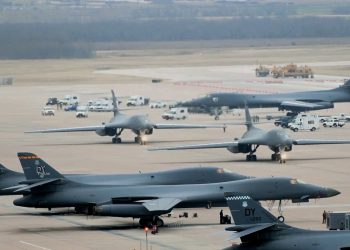,
WASHINGTON: Top U.S. Army officials on Tuesday said they still hope to award a contract for a new light cargo aircraft early next year, despite a congressional cut in funding for the program in fiscal year 2007.
Paul Bogosian, program executive officer for U.S. Army Aviation, said he expected to choose one of the two teams bidding to build the Joint Cargo Aircraft (JCA) by the end of February. Analysts value the deal at $6 billion to $7 billion.
L-3 Communications Holdings Inc. leads a team that includes Italy's Alenia Aeronautica, a unit of Finmeccanica <SIFI.MI>, and is offering its C-27J airplane. Raytheon Co. leads the other team, which includes EADS, and is offering the C-295 airplane.
The Government Accountability Office is due to rule by November 22 on a protest filed by a third contender, Lockheed Martin Corp. <LMT.N>, after a shortened version of its C-130J cargo plane was eliminated from the competition.
The Army launched the JCA program to replace its Vietnam-era cargo planes, and the Air Force joined the program in June.
Current plans call for both services to buy 145 planes, but conflicting defense spending legislation passed by Congress for fiscal year 2007 could delay the program.
House and Senate negotiators cut funding for JCA by $37 million to $72 million as part of the fiscal 2007 defense appropriations bill, which would pay for two aircraft. The defense authorization bill funded JCA fully at $109.2 million, but put the Air Force in charge and said a joint analysis of alternatives was needed before the money could be spent.
Maj. Gen. Virgil Packett, commanding general of the U.S. Army Aviation Warfighting Center, said Pentagon officials were working with Congress to reconcile the two bills.
“I have not seen a situation like this in the past,” Packett said. “Until it's reconciled, there's a fundamental question about can we in fact award a contract.”
But Packett said the Army was continuing to evaluate the two remaining contenders and work toward a contract award early next year. He said he had received no instructions to halt that work. Pentagon officials were advising him to “be patient.”
Army Chief of Staff Peter Schoomaker and other top officials say they remain committed to the program.
One Senate aide said he expected the House and Senate armed services committees to object to any effort to divert the funds to the Army, and said it was unlikely that a joint analysis could be completed before the end of fiscal 2007.
“I think the program will be put on hold until 2008,” said the aide, who asked not to be identified.
Giuseppe Giordo, president of Alenia North America, said the program appeared to be on track, since Army and Air Force pilots are scheduled to test fly the two competing aircraft in October and November as part of an “early user survey.”
“I'm not concerned because the Army and the Air Force really need to have these new cargo airplanes,” Giordo said.
He said the wars in Iraq and Afghanistan, as well as last year's Hurricane Katrina, had underscored the military's need for lighter cargo planes that can land at smaller runways.
Alenia has already sold 42 of the military cargo planes to Greece, Italy, Bulgaria and Lithuania, Giordo said. Now it is bidding to supply 14 to Australia and 15 to Canada.
“We're going forward on the expectation that the program will proceed,” agreed EADS spokesman Guy Hicks.








